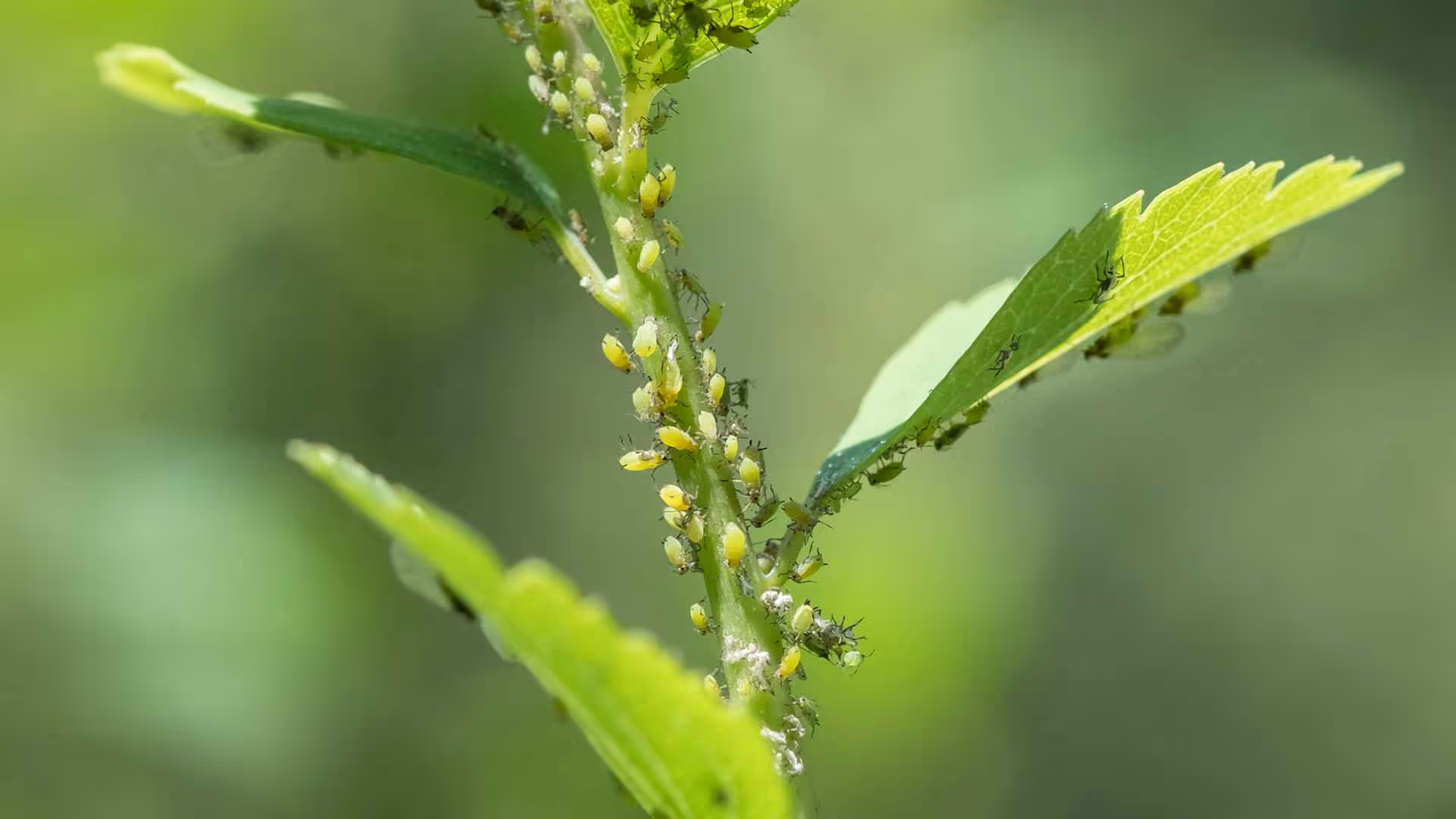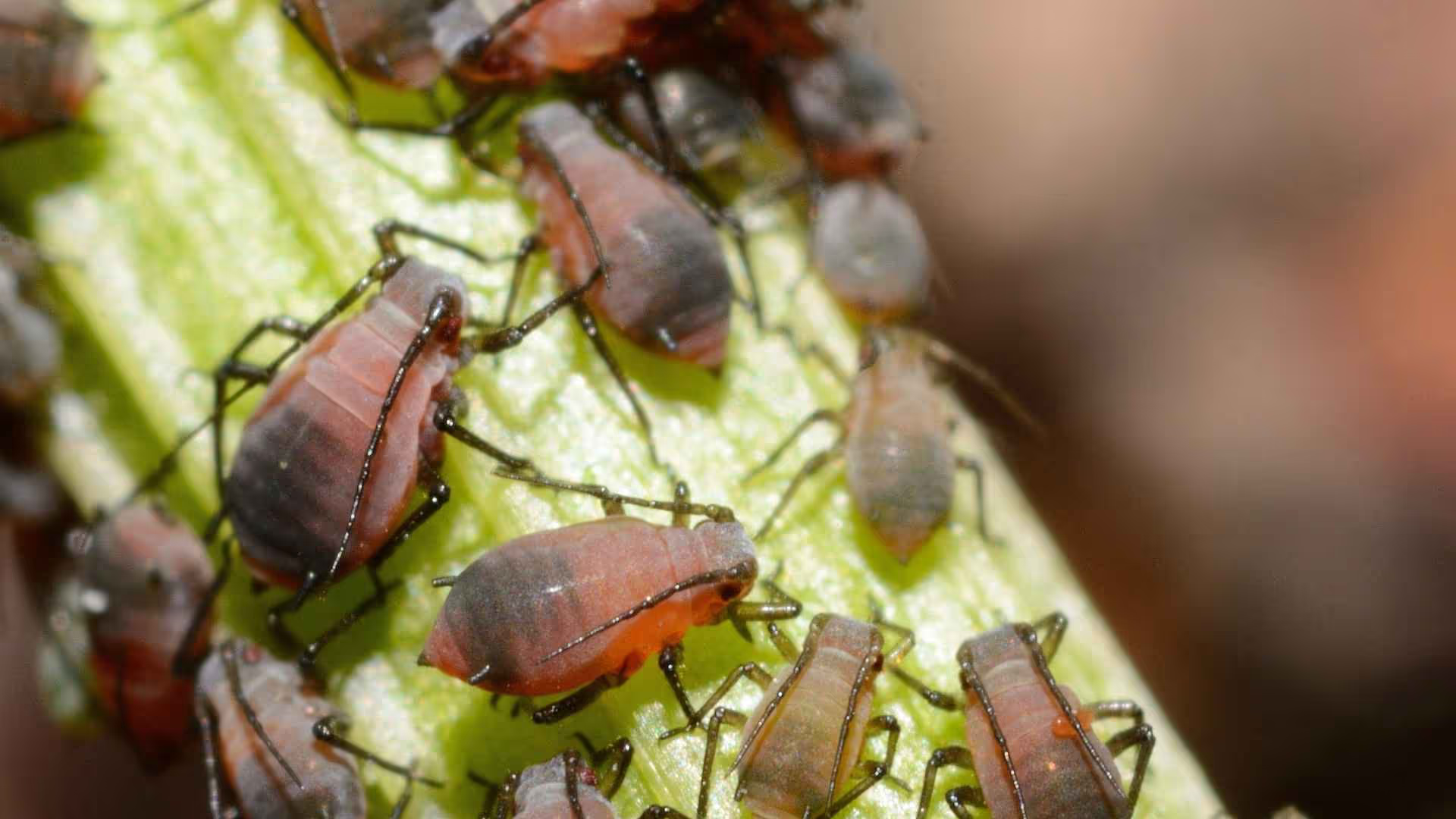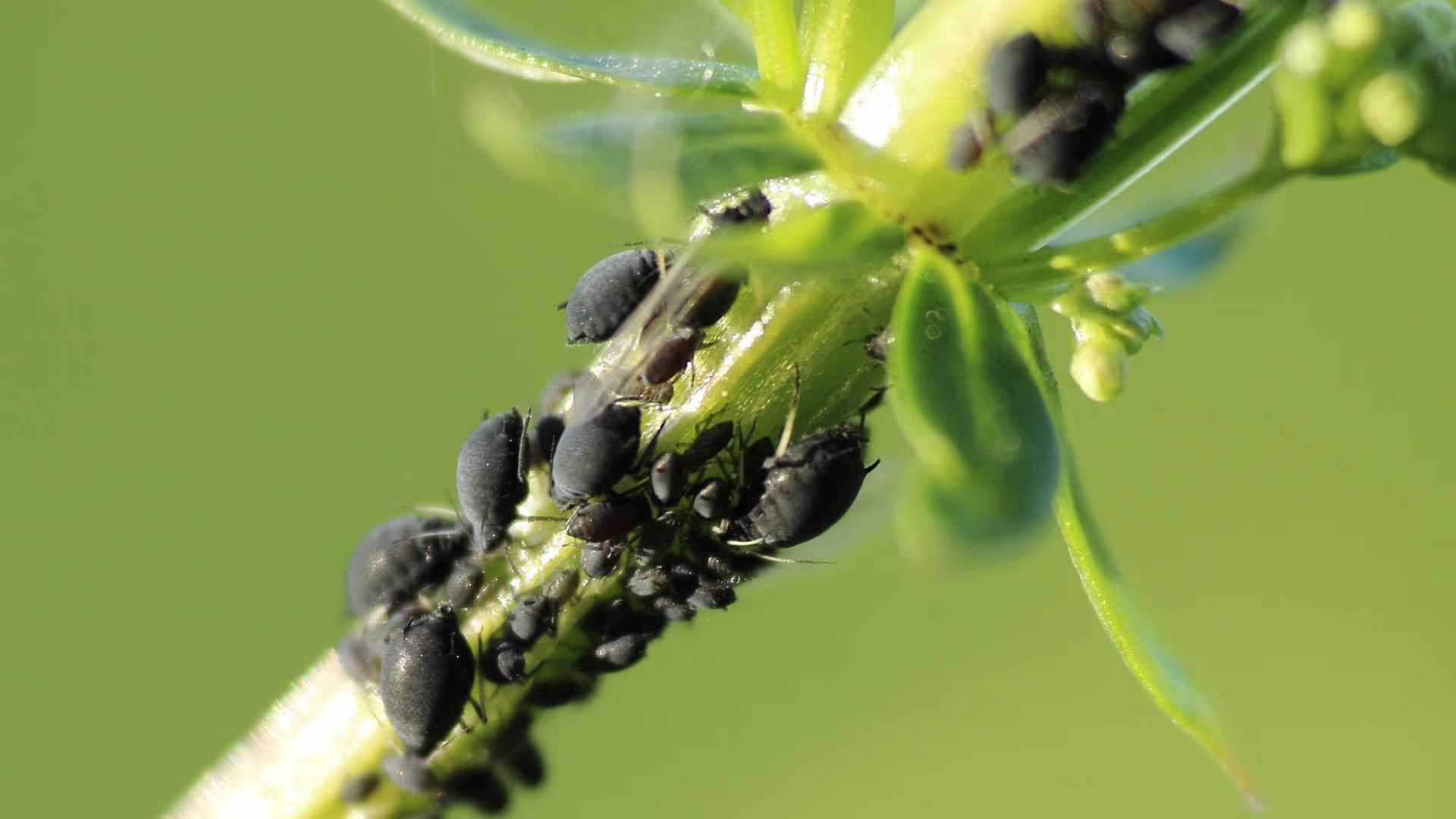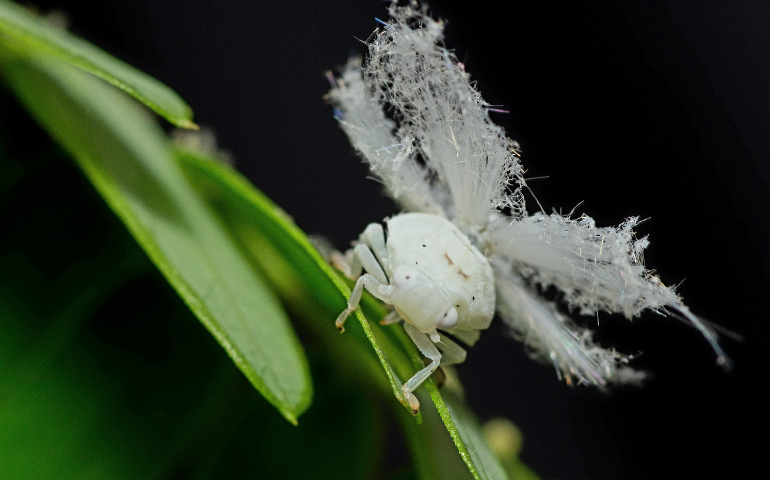What are Aphids?
Aphids are a common garden pest. Their small, soft body is pear-shaped, and individuals within a species vary in color. They may appear green, yellow, brown, red, or black. Their color changes depending on their diet. Adults are tiny, only growing to about 1/10th of an inch long. Their specialized mouthparts allow them to pierce the skin of a plant’s stems, leaves, flowers, roots, or shoots and suck out the nutritious fluid. Aphids feed together on plants in groups.
What Kinds of Aphids Are There?

This is one of the most common and widely distributed aphid species. It infests a variety of plants, including peaches, potatoes, and tomatoes. Green Peach Aphids can transmit plant viruses.

These aphids are a common pest of roses and can cause yellowing and curling of leaves.

These aphids are a common pest of beans and can cause stunted growth and reduced yields.

These aphids are characterized by their waxy, wool-like coating, which serves as protection. They can infest a variety of trees and shrubs.
Why Are Aphids A Problem?
Aphids, seemingly innocuous insects, can quickly become a significant problem for plants and gardens. Their small size belies their potential for wreaking havoc on plant health and attracting other pests. Understanding the issues associated with aphids is crucial for effective pest management.
Plant Damage
One of the main problems with aphids is their ability to cause damage to plants. These insects use their piercing-sucking mouthparts to feed on the sap of plants, which can cause stunted growth, yellowing leaves, and a decline in overall plant health. In some cases, aphids can even transmit diseases to plants, which can be fatal if left untreated.
Rapid Reproduction
Another issue with aphids is their ability to reproduce quickly. Female aphids are capable of giving birth to live young without mating, which means that populations can explode in a short amount of time. This can make it difficult to control an infestation, as even a small number of aphids can quickly turn into a large population.
Attracting Other Pests
In addition to causing damage to plants, aphids can also attract other pests to your garden or home. Ants are known to feed on the honeydew that aphids excrete, which can lead to ant infestations. Additionally, aphids can also attract other predators, such as ladybugs, which can cause problems if they are not controlled.
Overall, aphids are a pest that should be taken seriously if they are found in or around your home. If left unchecked, they can cause significant damage to plants and attract other pests to your garden. If you are experiencing an aphid infestation, it’s important to take action to eliminate the problem and prevent future infestations. This may include using natural or chemical remedies, such as insecticidal soap or neem oil, as well as implementing preventative measures such as removing debris and controlling moisture levels in your garden. Contact us today to exterminate and prevent aphids at your home!
